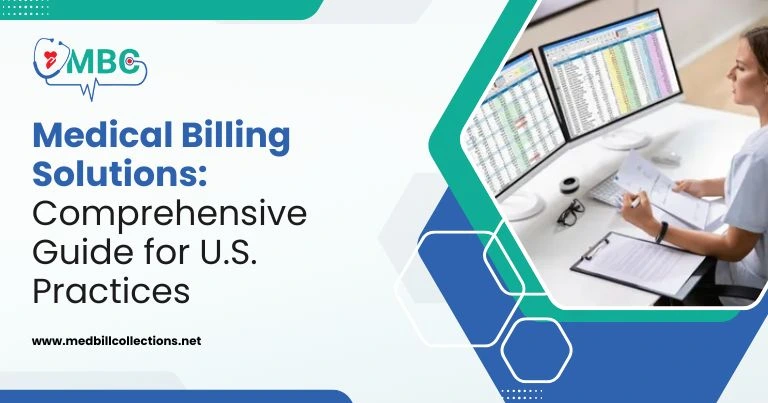Healthcare virtual assistants (VAs) are an impending mega trend in healthcare practice. They are gradually growing indispensable in the sphere of healthcare, including in such areas as scheduling appointments and giving telemedicine consultations.
In this blog post, we will also discuss how virtual assistants are working in current healthcare practice and how they can transform the way of offering care for providers and patients.
Virtual Medical Assistant Services are…
MVAs are digital tools for health practitioners to do their admin work so they can focus on patients. From managing your appointments to your medical records and insurance verification to follow-up treatments, these virtual assistants can do a lot.
These are workflow-streamlined tools for running a practice more efficiently. Moreover, virtual medical office assistants automate the boring so that healthcare professionals have more time with their patients. Remote patient monitoring and telehealth services have rapidly evolved along with virtual medical assistants in order to facilitate the functioning of medical offices and improve the patient’s care.
How Medical Virtual Assistants Improve Patient Care
MVAs revolutionize patient care with their innovative approach. They take away all the administrative burden and let providers spend more time caring for their patients. Additionally, VMAs streamline the overall operations of a practice by handling all administrative tasks related to appointment scheduling, medical records management, insurance company negotiations, and much more.
Doctors who spend more time with patients are better communicators and, therefore, are overall more satisfied. Virtual medical assistants help to facilitate better patient care by automating routine tasks while allowing for provider and patient support, as well as HIPAA compliance of patient records.
Integration of Medical Virtual Assistants: Challenges & Solutions
The integration of VMAs with healthcare practices may be problematic. The reluctance of healthcare professionals to adopt virtual assistants concerns data security, which is a significant factor. To deal with this, a thorough training on HIPAA compliance and data security should be provided so that virtual assistants do not break strict privacy rules.
Healthcare professionals may also have to be trained to use modern virtual assistant software. However, comprehensive training and continuing support will make this easier. The second challenge is the high initial cost of virtual medical and healthcare assistants and services.
The upfront cost is significant, but the long-term cost and time savings make it well worth it, and proactive measures can help further improve these results. However, not all healthcare practices can actually integrate virtual medical assistants inside their facilities or make them work hand in hand with other healthcare practices to better care for patients.
Cost-Benefit Analysis of MVA in Modern Healthcare
Before implementing virtual medical assistant services in your practice, do a cost-benefit analysis. The upfront investment into virtual assistant services might be high, but the total benefits in the future will far exceed the investment. Virtual medical assistants reduce the administrative work so medical professionals can spend extra time with patients. This means higher efficiency can translate to better patient satisfaction and better outcomes.
Along with other medical professionals, virtual assistants help in HIPAA compliance by securely managing patient information. Investing in virtual medical assistants offers significant advantages, including comprehensive HIPAA compliance training and robust data security measures for your healthcare practice.
How to Choose the Right Medical Virtual Assistant for Your Practice
If you are looking for a medical billing virtual assistant for your practice, there are a few critical factors to consider. First of all, derive the tasks that you want the virtual assistant to perform. Try to choose a virtual assistant who has experience and excellence in these areas.
Another important factor is that they are well versed in what HIPAA compliance means. To be effective, virtual assistants should be extensively trained through HIPAA compliance training to possess awareness of the guidelines and regulations specific to patient confidential information and be able to correctly handle it.
In addition to possessing technical skills, you should try to find a virtual assistant who is well trained, reliable, responsive, and communicative. It’s important to have strong time management skills to coordinate appointments and keep things in order.
Other considerations include flexibility and availability of the front office. The reason is that there are no location restrictions when it comes to virtual assistants, so make sure their work hours are in line with your practice’s scheduling needs. Before hiring a VA, look at reviews and testimonials to see what people thought of their performance and how reliable they were.
With these tips in mind, you will be able to find the most suitable medical billing virtual assistant who will effortlessly become part of your practice and offer tremendous assistance to you and your patients.
Medical Virtual Assistant Technology Future Directions and Emerging Trends
Medical virtual assistant technology possesses high potential for the healthcare industry based on its growing capabilities. Additionally, there is growing interest in integrating artificial intelligence (AI) into virtual medical assistants. AI can automate patient-centric discussions to make decision-making faster, more efficient, and better suited to answering questions based on probing a vast volume of medical information.
With natural language (NL), this type of voice recognition technology will change healthcare as healthcare workers can interact with personal assistants. There are possibilities to facilitate communication with virtual assistants and patient examinations.
In addition, mobile applications and wearable devices specially developed for virtual medical assistants might enhance their functionalities. As these trends begin to emerge, the VMAs will play an even bigger role and truly change the future of healthcare.
Final Thoughts
Virtual medical assistants are going to transform how administrative work is handled and the quality of patient care done. These remote resources come with various advantages, such as appointment scheduling in addition to HIPAA proficiency. Through the incorporation of virtual medical assistants, practitioners can improve their work productivity and subsequently improve patient satisfaction.
While there may be challenges to overcome with virtual assistant services, the long-term benefits ultimately outweigh the difficulties. Here are the most important criteria you should look at when selecting the right virtual assistant software for your practice: functionalities, ease of use, security, and proven track record.
The future of virtual medical assistants is bright, driven by the integration of AI and voice recognition, which will further enhance their capabilities. All in all, virtual medical assistants are valuable in today’s healthcare sector, who help in enhancing the execution and revolutionizing the treatment.







